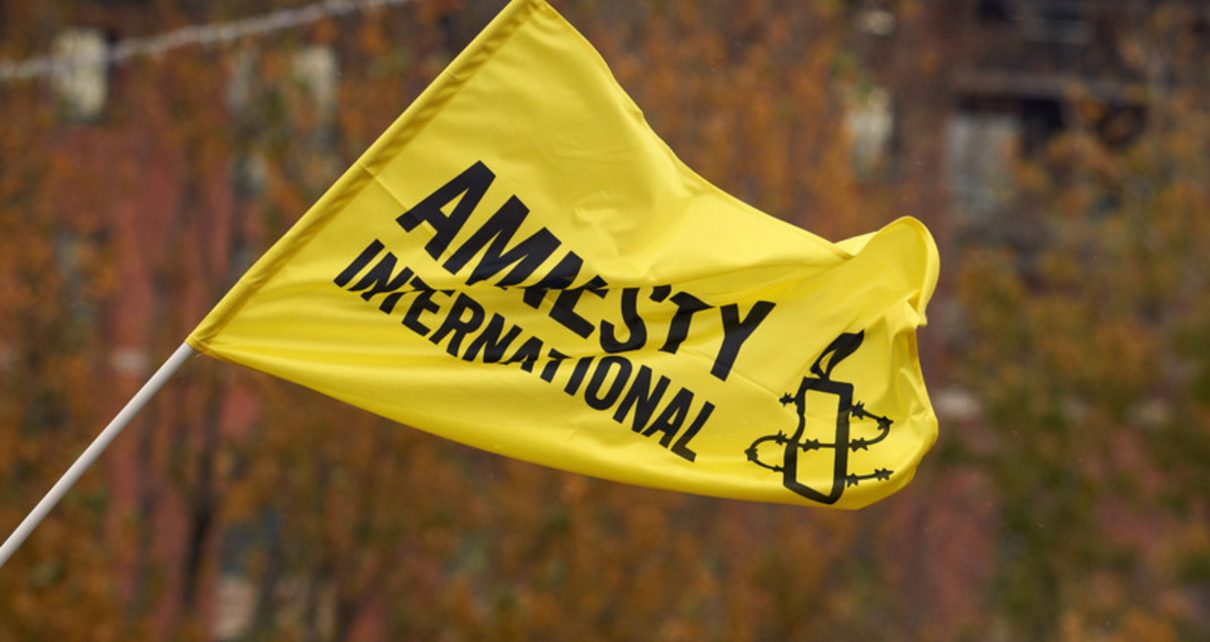
Amnesty International, which is 61 years, having been established in 1961, is up for lunch in angry Ukraine. If you must know, its ‘sins’ are very grave. Those who run the West assume they have Amnesty eating out of their hands. On the other hand, those outside the Western ruling class circles like India, China and Syria see the organisation as the propaganda arm of the West. So much heat was turned on Amnesty in India that the organisation in September 2020 decided to throw in the towel.
Sometimes, Amnesty’s wounds are self-inflicted such as when the Konterra group in its 2019 report following an independent investigation, established a culture of racism, harassment, sexism and bullying in the organisation.
In the ongoing Russo-Ukrainian War, Amnesty has made numerous reports of alleged war crimes by Russia. Agnès Callamard, Amnesty International’s Secretary General in an August 2022 message to the United Nations Security Council said: “Russia’s abominable conduct and the fact that during its six months of aggression against Ukraine its forces have endangered and killed many civilians. We should not allow the Russian authorities to avoid accountability.”
Amnesty was applauded in the West for its reports against Russia. Then something happened. In the course of its investigation of alleged Russian war crimes, the Amnesty teams were confronted with what amounts to war crimes by the Ukrainian authorities and military.
Amnesty in an August 4, 2022 statement accused Ukrainian forces of putting civilians in harm’s way by establishing bases and operating weapon systems in populated residential areas, including in schools and hospitals. It said such tactics violate international humanitarian law and endanger civilians because they turn civilians into military targets. It added that the ensuing Russian counterattacks in populated areas have killed civilians and destroyed civilian infrastructure.
Amnesty argued that: “Being in a defensive position does not exempt the Ukrainian military from respecting international humanitarian law.”
Amnesty claimed that from April-July, 2022, its teams investigated the war in the Mykolaiv Kharkiv and Donbas regions, in the process, investigating sites, interviewing people, carrying out remote-sensing and weapons analysis and scrutinizing satellite imagery.
It claimed that it discovered that Ukrainian forces in 19 towns and villages in the regions embedded themselves in populated residential areas from where they launched strikes against Russian forces.
The international organization reported that most residential areas the Ukrainian forces stayed to strike out against Russian forces were kilometres away from front lines. It pointed out that there are viable alternatives like military bases, forests and other places far from residential areas the Ukrainian military could operate from without endangering civilians.
It accused Ukrainian forces of failing to evacuate civilians from their areas of military operations. Amnesty said its researchers in the three regions witnessed the Ukrainian military operating near residential areas, thereby exposing them to retaliatory fire from the Russian military.
Amnesty says on June 10, in a village south of Mykolaiv, its team interviewed the mother of a 50-year-old man killed in a rocket attack who said: “The military were staying in a house next to our home and my son often took food to the soldiers. I begged him several times to stay away from there because I was afraid for his safety. That afternoon, when the strike happened, my son was in the courtyard of our home and I was in the house. He was killed on the spot. His body was ripped to shreds. Our home was partially destroyed.” When the Amnesty team searched the house next door, it found military equipment and uniforms.
Amnesty said it also interviewed Mykola, living in a neighbourhood of Lysychansk in the Donbas Region which had been the target of repeated Russian attacks who said: “I don’t understand why our military is firing from the cities and not from the field.” It quotes another resident, a 50-year-old man as saying: “There is definitely military activity in the neighbourhood. When there is outgoing fire, we hear incoming fire afterwards.”
Amnesty claimed that on May 6, in a town in Donbas, the walls of the home of 70-year-old Anna were damaged by shrapnel. The lady who lives in the house with her son and 95-year-old mother said: “Shrapnel flew through the doors. I was inside. The Ukrainian artillery was near my field… The soldiers were behind the field, behind the house… I saw them coming in and out… since the war started… My mother is… paralyzed, so I couldn’t flee.”
Amnesty said in early July, Russian forces struck an agricultural warehouse in the Mykolaiv area. It was opposite a farm civilians where living and working. It claimed that when its team visited the warehouse hours after the strike, it found Ukrainian soldiers and vehicles in the grain storage area.
The Amnesty report also documented other cases in towns and villages where Ukrainian forces are using populated residential houses, schools and hospitals as military bases from where they launch attacks on Russian forces and attract retaliatory strikes. The implication is that the Ukrainian military has been using the civil populace as a shield thereby committing war crimes. The second point is that accusations against the Russian forces of hitting civilian targets which is the main basis for accusing them of perpetuating war crimes would become weakened with such damning evidence from Amnesty International that cannot be reasonably accused of working for the Russians. Thirdly, it deals a serious blow to the Ukrainian leadership that has been playing the victim card.
Understandably, the Ukrainian establishment, its military and allies cannot control their anger about the report which they have not tried to refute. Without challenging the facts presented, Amnesty is accused of presenting a “vague” statement, “victim blaming” being infiltrated by Russia and engaging in disinformation.
The day the report was released, the personal details of the head of Amnesty International’s Ukraine chapter, Oksana Pokalchuk were posted online making her a possible target for attacks. The next day, either out of fear or conviction, she resigned on FaceBook, distancing herself from the report and denouncing her former colleagues.
An obviously disturbed Ukrainian President Volodymyr Zelensky railed against Amnesty: “We saw today a completely different report from Amnesty International, which, unfortunately, tries to amnesty the terrorist state and shift the responsibility from the aggressor to the victim.”
Ukrainian Foreign Minister Dmytro Kuleba said of Amnesty: “ its report distorts reality, draws false moral equivalence between the aggressor and the victim, and boosts Russia’s disinformation effort. This is fake ‘neutrality’, not truthfulness.”
Amnesty in deflecting the attacks declared that the attacks on it is: “called war propaganda, disinformation, misinformation. This won’t dent our impartiality and won’t change the facts.” This statement further infuriated its attackers who want Amnesty International on their dinner table.
Owei Lakemfa is a journalist, labour and social rights activist and host of Diplomatic Hour, Citizen FM, Abuja.


